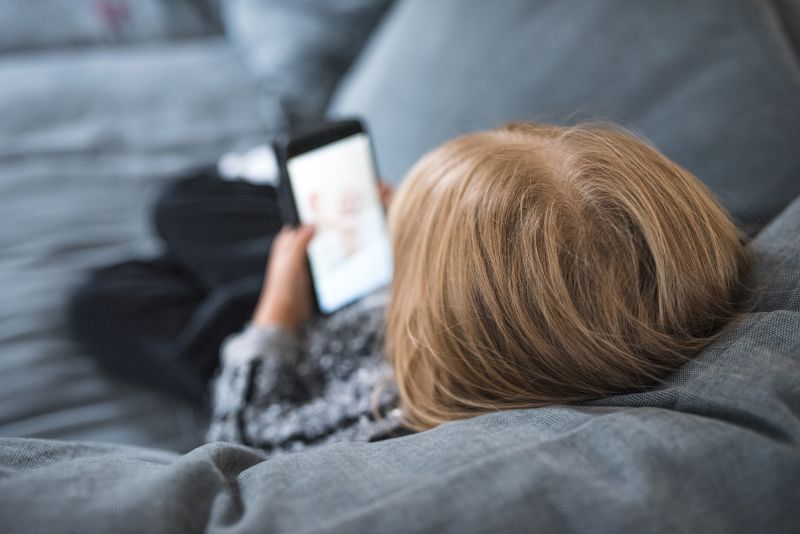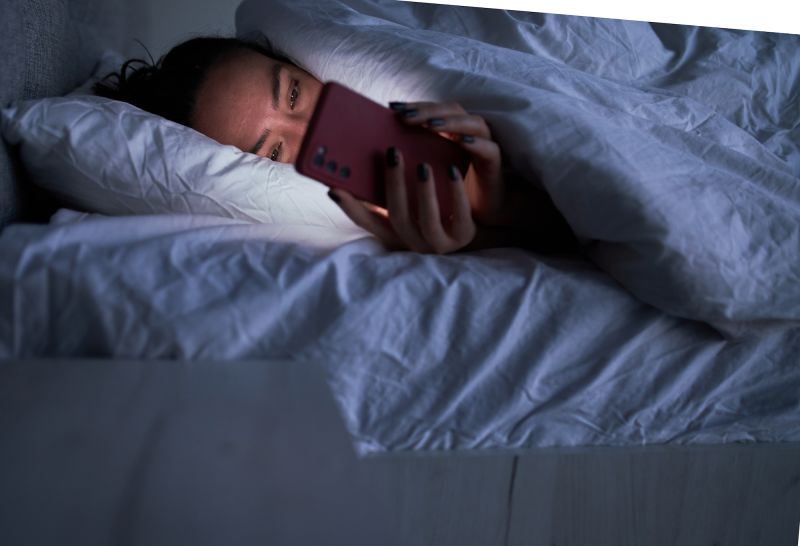How to win the fight with kids over phone use

Editor’s note: Kara Alaimo is an associate professor of communication at Fairleigh Dickinson University. Her book “Over the Influence: Why Social Media Is Toxic for Women and Girls — And How We Can Take It Back” was recently published by Alcove Press. Follow her on Instagram, Facebook and X.
It’s a familiar struggle in many households: trying to pry kids’ phones away before bedtime.
The American Academy of Pediatrics has recommended that children not use screens in the hour before bed to ensure they sleep well. But for parents and guardians it can be near impossible to win this battle. The end of the day — when school, extracurricular activities and homework are (hopefully) finally done — is the window that many kids have for downtime. They often won’t give up their phones without a fight.
Thankfully, phone use before bed might not be as bad for kids’ sleep as previously feared, a study published September 3 in the journal JAMA Pediatrics found. But the research indicates that kids using their phones once they are under the covers is a bad idea.
The small study of children in New Zealand ages 11 to 14 found that using phones in the two hours before they went to bed didn’t interfere with how much sleep they got — they simply went to bed later and got up later.
However, being on their phones once they were in bed was detrimental to their sleep. Using phones in interactive ways under the covers — for things such as gaming and multitasking — was worse for kids’ sleep than using it more passively, for things such as watching movies. But all of the activity interfered.
“What we found is that screens and sleep are vying for the same slice of time — streaming or dreaming, but you can’t do both,” said lead study author Bradley Brosnan, a researcher in the department of medicine at the University of Otago in New Zealand.
One limitation of the study is that it focused on younger teenagers, said Brosnan, who is also director of Screenwise, a nonprofit that promotes digital wellness. The effects of using phones before bed could be different in younger children or older teens.
The importance of sleep
Sleep is critical to children’s health. Not getting enough shut-eye increases a child’s risk of accidents and injuries as well as health problems, including depression and obesity, according to the American Academy of Pediatrics. Sleep deprivation is also associated with having problems learning, paying attention and behaving.
The new research suggests parents should insist that kids not use their phones in bed. Yet it’s often not realistic to ask children not to look at their phones. Social apps are designed to keep people hooked, with features such as regular notifications and feeds that never stop showing more content.
Instead, parents might consider taking kids’ phones away before bed and returning them in the morning.
It’s also important for parents to remember that lost sleep isn’t the only risk phone use poses to young people. In that hour or two before bed, teens could still be cyberbullied, fall for scams or unknowingly connect with predators online. That’s why, in my talks to parents about how to handle their kids’ use of social media, I suggest coming up with rules that make sense given their family’s circumstances.
Setting the rules for smartphone use
Just as it’s important to make sure phones don’t interfere with sleep, parents also need to ensure they don’t interfere with kids’ education, extracurricular activities and face-to-face time with family and friends. One policy is having kids leave their phones at home when they go to school. Children might also be required to put their phones away while they are doing their homework and at the dinner table.
Yet exceptions will almost always be called for. In my own home, my phone is often on our dinner table because, as an ER doctor, my husband works a lot of evenings. My daughters and I like to chat with him briefly via FaceTime (when he can) during dinner so he can get a download on their days.
Likewise, while it’s generally a bad idea to let kids use phones while they are doing homework — our brains can’t multitask, so all that checking of social apps is a distraction — there are times when they might need internet access to do research for schoolwork. Or they might need to contact a friend with questions about an assignment.
It’s also important for parents to talk to kids about the dangers they could face online. I suggest discussing why they should never share intimate images. These could later be “sextorted” by someone who threatens to put the pictures online unless the child pays money or engages in sex acts.
Parents should also remind kids that many online profiles are fake: A friendly-appearing individual or follow request they receive could be from a child predator impersonating someone else.
And it’s a good idea to help kids find healthy communities online. One way to do that is to search together on social apps for content that aligns with their hobbies and interests. Then, even when parents are not around, children are likely to be shown similar content, because algorithms are programmed to show people what they think they like.
Another important discussion concerns how people post the glamorized versions of their bodies and lives online — often with heavily filtered photos. Otherwise, kids can be left feeling as if they don’t measure up to what they see on social media.
It’s also essential to talk about avoiding dangerous content, such as the so-called fitness inspiration content that one woman whom I interviewed for my book told me caused her to develop an eating disorder as a teenager.
The most important message
The most important thing to convey to kids is that if they get into trouble online, they can turn to their parents for help, Carrie Goldberg, a victims’ rights attorney based in New York City, told me in an interview for my book.
Goldberg often handles cases of children who’ve been abused online. She said she has seen children in dangerous situations — for example, being sextorted — in which they have been afraid to tell their parents what was going on because they worried about their phones being taken away.
This new research is a reminder that there are commonsense ways to help kids avoid the major dangers of using their phones. The report should help parents sleep better, too.







